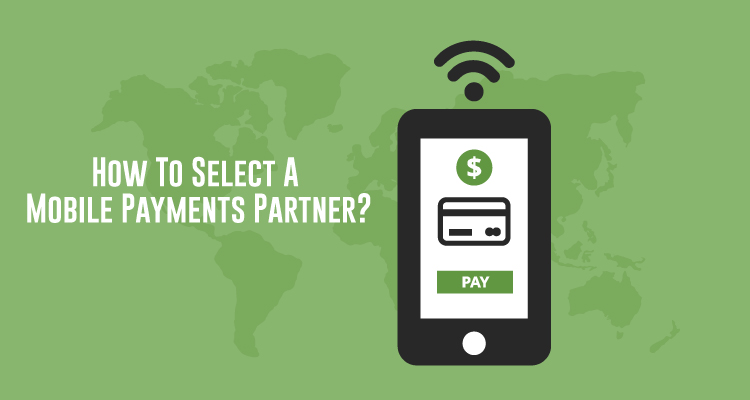One of the most revolutionary advancements in history has been the ability to accept payments directly on mobile devices. This has made it possible for small businesses and freelancers (among others), to accept payments from anywhere.
Businesses allow customers to make payments from their smartphone. That has now replaced the need to carry cash or plastic.
This convenience can increase your revenue and improve customer satisfaction, but only if you select the right mobile payments partner. That’s why we’ve put together this handy, little guide to help you pick the best payment processor for your business.

Table of Contents
ToggleWhat are the needs of you and your customers?
“There are many mobile payment providers, but they aren’t all equipped to allow payments, nor do they intended to deliver the same types of services. These have to define how you’ll use them in the system to support your operations, including where, and for whom,” writes Kristen Gramigna, Chief Marketing Officer for BluePay.
“If you intend to use mobile payments only to process credit or debit card payments on a smartphone, for example, your needs may be served with a basic mobile payment merchant account.” However, if you run a business where inventory is involved, like a food truck, then you should be looking for platform that can handle inventory management, such as purchase order issuance, stock counts, and replenishment.
Additionally, there are also mobile payment systems that are designed specifically “to support customer loyalty and rewards programs, and others serve specific niches, like restaurants and retail environments.”
Gramigna suggests that you, “Outline how the ideal mobile payment system could support your business. Use your list of “must haves” to compare the many options that are available.”
You also need to consider the demographics and psychographics of your customers. For example, are they tech-savvy Millennials or Baby Boomers who don’t own smartphones? You also to think about their preferred payments methods and what kind of technology they use.
If a majority of your customers use iPhone, then you would want a mobile payments partner that accepts Apple Pay.

How much are fees and other costs?
Credit card processing fees are unavoidable. However, some companies can charge as much as 5 percent on everything that a company makes off of credit and debit card sales. However, there are many companies that charge far less. For example, Due charges just a 2.8 percent transaction fee.
When searching for a mobile payments partner, keep an eye out for the following fees:
- Interchange fees: This is the fee that is charged for every credit or debit card swipe. The rate is determined by factors like: the type of card being used, the type of transaction, and the size of each transaction.
- Monthly statement fees: Some processing companies charge a monthly statement fees in order to pay for the cost of mailing you a statement.
- Application and setup fees: There are companies that charge you just for simply applying for the processing service and setting up the equipment.
- Monthly minimum fee: This is the minimum amount in fees the the processing company needs to collect each month, if you’re under or over this figure, you’ll be charged the difference.
- Monthly gateway access fee: You could be charged a monthly fee for using the payment gateway.
- Early termination fee: If you cancel your contract, you could be hit with a pricey early termination fee.
Compare these fees among mobile payments partners so that you can find a company that has the most favorable rates. The less that you pay in fees, the more you’ll be able to put in your business’s bank account.
Are they PCI compliment?
As soon as you accept payments from customers, you’re expected to adhere to and comply with the PCI Data Security Standard (PCI DSS). At the very least, you should complete the annual SAQ (Self-Assessment Questionnaire) to determine whether or not your business is PCI DSS compliant.
As for the processor, any reliable company will be PCI compliant. Also, they should be able to assist you in completing the SAQ and guide you in making sure that your business is secure.
Is security a top priority?
Having the ability to accept payments anywhere, anytime, on any device is convenient for you both you and your customers. However, that means that security has become a necessity. In order to protect protect both you and your customers, you should only work with a payments partner that takes security seriously by offering security features like tokenization technology and P2PE (Point-to-Point Encryption).
What payments are accepted?
Let’s say you’re a retailer. Look for a processor that accepts all major credit and debit cards so that you won’t drive away any business. Depending on your specific business, you may also want to accept EBT, benefit transfers, prepaid cards, and gift cards. If you have more tech-savvy customers, then you may want to accept eCash, like bitcoin, or a processor with near-field communication (NFC) technology so that you can accept mobile wallet payments like Apple Pay, Samsung Pay, and Google Wallet.
Is set-up easy?
There’s no reason for your mobile payment processor to be too complex too set-up. Look at Square, for example. You pretty much just download the app and plug the reader into your mobile device. After setting your preferences, you can start swiping cards. It doesn’t get any easier than that, does it?
If set-up seems too complicated, then at least make sure that there’s top-notch support. However, you’re better off having a processor that you can troubleshoot yourself — without having to talk to a technician.

How good is customer service?
Speaking of customer service, you want to have a service provider that offers 24/7 customer support, along with access from an account rep. The reason? You never know when you’ll have a technical question or need to resolve a billing concern.
You may be paying a small amount extra in fees. However, having customer service whenever you need one is definitely worth it; having that security delivers peace of mind.
















